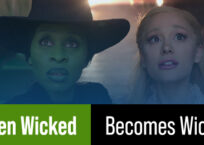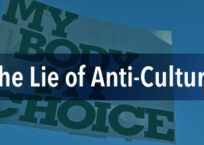
Following my open letter to Notre Dame University president, Rev. John Jenkins, regarding the administration’s decision to officially recognize an “LGBT” student organization, I received both a phone call and email from a Cambridge, Massachusetts homosexual activist and freelance journalist, who graduated from Notre Dame (but has since abandoned his Catholic faith for Reform Judaism). He was upset by my letter, which he describes as a “judgmental,” “vile,” and “hateful” letter. In a lengthy phone call, we discussed a whole host of issues related to homosexuality.
The next day he sent me an email to which I responded. That exchange is printed below. My hope in publishing this is to help expose the flaws in “progressive” ideas about homosexuality in the hope that conservatives will become more comfortable participating in this essential public conversation. Here is his email, followed by my response:
Laurie,
Thanks for returning my call yesterday. I enjoyed our chat. And am thinking about what you said. Needless to say, we hold very different world views and vastly different life experiences. I appreciate that you were willing to speak with me.
I am sending this along and asking that you take it to heart and head. The quote comes from an imam who spoke recently at my temple for the MLK, Jr. weekend Friday evening service: “We have to be able to take each other as brothers and sisters….We have to learn to forgive each other, and we have to learn to not believe the things we are told about each other before we sit and face each other, and get to know each other, and hug each other, and love each other, and cry together, and share together.”
It seems to me that on both sides of the gay rights divide we need more of the kind of conversation you and I had yesterday and much less of the kind of letter you sent to the president of my alma mater.
I encourage you to do what the Imam Webb suggests and truly get to know LGBT people in the fullness of our humanity and not as sin predisposed persons. Like straights, gay people have just as much intrinsic goodness along with all the sinful warts.
As I tried to explain calling out LGBT’s as sinners is a real conversation stopper.
And the student group at Notre Dame has already been called to chastity.
Sorry for “yelling” at you, too.
Dear _____,
Thanks very much for your call yesterday and conciliatory email today.
I agree that discourse between un-likeminded people is important. In fact, one of the problems I see in the Left’s relentless labeling of all who hold beliefs like mine as hateful, ignorant bigots is that it undermines or destroys any possibility of discourse or relationships between those who hold opposing views on the nature and morality of homosexuality.
In a diverse world, most people I know are perfectly capable of enjoying the company of, appreciating the admirable qualities of, and even deeply loving those who hold beliefs and make life choices that they believe are wholly misguided. Most of us do it all the time. Most of us have figurative and literal brothers and sisters whom we sit down with, eat with, and love, but whose beliefs, behavioral choices, and relationships we believe are flawed and will undermine human flourishing (which is not necessarily the same as human pleasure).
But I disagree with your implication regarding the appropriateness of publicly stating which behaviors constitute moral acts. And I would be surprised if you apply it consistently. I doubt you would argue that all public statements regarding which acts are sinful/immoral are off-limits. You likely believe that there are a whole host of public statements that can and, indeed, should be made about what constitutes sinful/immoral acts. You likely say that homosexuality is the one topic about which negative moral propositions should not be publicly expressed because you believe homosexuality is at the core of an immutable identity and because you believe homoerotic acts are ontologically and morally equivalent to hetero-erotic acts. But that’s the unsettled debate. I reject all those ideas as objectively false. This leads to a larger discussion of “identity,” a subject on which we would surely disagree also.
The public square is not merely about friendships between individuals (e.g., you and me). It’s also about the full, free, and messy exchange of ideas that have real life implications for individuals and society. Feelings get hurt. People get angry. Despite what the culture says, our feelings are not superordinate to all other aspects of human experience. In fact, feelings are woefully unreliable arbiters of truth and morality.
I believe that your same-sex attraction is unchosen, powerful, persistent, and disordered. It is a tragic sin predisposition. Welcome to the world that every single human—save one—has inhabited. The reason I and others must talk about this topic more than other sin predispositions is that homosexual activists and their ideological allies are talking about it vociferously and volubly. And they’re coming in to our public schools and teaching their subjective beliefs to children while censoring competing views.
Moreover, they want the public square to themselves. They arrogate the right to make public statements about the nature and morality of homosexuality to themselves alone. In our phone conversation, you asserted that my statement that unchosen same-sex attraction is a “sin predisposition” was a vile, hateful conversation-stopper. Well, describing homosexuality as a sin predisposition is just about the mildest way to describe conservative beliefs on homosexuality. There is no less offensive way to say it while still representing conservative beliefs. If I were to concede to your request (or demand) not to use “inflammatory conversation-stoppers,” I would have to refrain from expressing conservative moral propositions at all, while you and others who share your views would be free to express yours in any way you see fit in public schools, the mainstream press, the arts, and political halls of power. If the term “sin predisposition” is a “conversation-stopper,” it’s because some on your side get huffy and pouty and stop conversing. They won’t converse with anyone who expresses any propositions with which they disagree.
You want to have conversations as long as you can establish the ground rules, first and foremost of which is that I must concede to your definitions of terms, your ideas, and your assumptions and that I not use any terms or arguments that hurt your feelings, or—in your view—“harm” people. And I have to use your definition/understanding of “harm.” In my experience, the Left believes that harm is significantly or centrally constituted by the presence of uncomfortable feelings (e.g., guilt, shame, sadness). I, on the other hand, believe that sometimes, perhaps often, the presence of guilt, shame, and sadness are indicators that people (including me) are doing something wrong. But in any case, to be honest and comprehensive, discourse on controversial topics will be uncomfortable.
What’s most fascinating in the public debate is that the Left has so intimidated conservatives and so abused the notion that uncomfortable, unpleasant “feelings” = harm that conservatives rarely demand that “progressives” actually defend with reasons their own presuppositions.
- For example, how exactly is homosexuality per se analogous to race?
- Or, if marriage is solely constituted by romantic feelings, why should it be limited to two people?
- Or, since the Left claims that the expression of moral propositions about volitional behavior is equivalent to hatred, are they guilty of hatred when they claim polyamory or consensual adult incest, or income inequality is wrong?
- Or, what is the evidence that homosexuals are “born that way”? If the evidence is simply that they have experienced unchosen powerful, persistent, seemingly intractable feelings from a young age, do they then argue that acting on all unchosen, powerful, persistent, intractable feelings is inherently and automatically moral (and central to identity)? My orthodox Christian faith is central to my identity, and as a Calvinist, I don’t believe I chose my Christian identity. I believe God called me inexorably to him. And yet I don’t believe that everyone must affirm or approve of my beliefs. Nor do I call people hateful and vile for thinking my beliefs are wrong and destructive. I actually know there are people who love me despite our passionate disagreements on sexual morality and theology.
As for “yelling,” at me, water under the bridge. All of us lose our cool on occasion, especially when we care deeply about something.
I do wish you all that’s good and true and beautiful. And God tells us what that is.
Sincerely,
Laurie
Click HERE to support Illinois Family Institute (IFI). Contributions to IFI are tax-deductible and support our educational efforts.
Click HERE to support Illinois Family Action (IFA). Contributions to IFA are not tax-deductible but give us the most flexibility in engaging critical legislative and political issues.

























